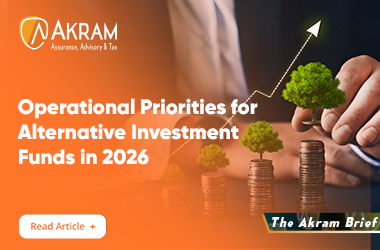SEC Proposes to Enhance Private Fund Investors Protection
The Securities and Exchange Commission (SEC) voted to propose amendments to the Investment Advisers Act of 1940 on February 9, 2022, if adopted, will have a significant impact on private fund managers.
Private Fund Advisers will be prohibited from conducting certain activities
Adviser could not charge certain fees and expenses to a private fund or portfolio investment, including:
- Accelerated monitoring fees
- Fees or expenses associated with a regulatory and/or governmental examination or investigation of the adviser or its related parties
- Fees and expenses related to a portfolio investment on a non-pro rata basis to multiple funds and/or other clients
Private Fund Advisers can’t:
- Seek reimbursements, indemnification, exculpation or limitation of adviser liability by the private fund or its investors for breach of fiduciary responsibility, willful misfeasance, bad faith, negligence or recklessness,
- Borrow money, securities or other fund assets, or receive an extension of credit, from a private fund client
Private Fund Advisers can’t give preferential treatment to certain investors that has a material negative impact on other investors in the private fund, such as:
- Preferential redemption terms
- Information about portfolio holdings or exposures
- Other preferential treatment, such as side letter arrangements for fees and/or other agreements that are not disclosed to all existing and prospective investors
Private funds will also be prohibited from running certain expenses through their private funds, and the SEC has clearly signaled they will apply more scrutiny to this area. In addition, offering and governing documents may need to be revised to ensure they are specific in terms of the type of expenses that are charged to the fund to make it clear to regulators and investors. Expenses will also need to be referenced to the appropriate section of the governing documents on the quarterly account statement. Auditors will likely need to spend more time auditing the expense areas to ensure compliance.
Private fund advisers that continue to provide preferential redemption terms and/or information rights to certain investors will need to perform analysis to ensure those rights do not negatively impact other investors.
Should private fund advisers continue to have side letters that offer differing fee structures etc., those terms would need to be disclosed to current and prospective investors. Determining the medium of disclosure and then engaging with the current and prospective investors will likely generate interesting discussions as to why there are differing terms.
Quarterly Account Statements within 45 days
Private fund advisers registered with the SEC will be required to provide quarterly account statements to investors within 45 days after each calendar quarter-end.
The quarterly account statements would be required to disclose the following Fee and expense disclosures information:
- Compensation, fees and other amounts paid to the private fund adviser or its related parties with cross-references to the governing documents that dictate the calculations;
- Other expenses paid by the private fund with separate line items, including, but not limited to, organizational, accounting, legal, administration, audit, tax, due diligence, travel etc. with cross references to the governing documents that disclose the expenses;
- The private fund’s ownership percentage of each portfolio investment
Standardized fund performance information based on the type of fund:
- Liquid funds would disclose net total return on an annual basis since inception and on a quarterly basis for the current year;
- Illiquid funds would disclose performance based on the internal rate of return and a multiple of invested capital;
- Criteria used and assumptions made in calculating the performance will need to be disclosed.
There will be a significant amount of administrative time required to prepare the quarterly account statements in addition to a quick turnaround. This could be a challenge to all funds, but even more difficult for funds that have complex structures and need to value hard-to-value illiquid investments.
Annual and a Liquidation Private Fund audit
Private Fund Advisers to cause the private funds they advise to undergo a financial statement audit at least annually and upon liquidation. Auditor must be registered with, and subject to regular inspection by, the Public Company Accounting Oversight Board (PCAOB). Auditors must notify the SEC if terminated or if they issue a modified opinion
All private fund advisers that are registered with the SEC must obtain audits for their private funds. Exemptions under the custody rule or otherwise will no longer help a fund avoid an audit requirement. There will need to be a written agreement between the private fund adviser and their auditor that the auditor will need to communicate with the SEC if terminated or they issue a modified opinion. The SEC would likely pay additional attention to the private fund adviser, if these notifications occur.
Fairness Opinion for an advisor-led secondary transaction
Registered private fund advisers, in connection with an adviser-led secondary transaction, to distribute to investors a fairness opinion and a written summary of certain material business relationships between the adviser and the opinion provider.
Private fund advisers will need to have a fairness opinion on the transaction performed. Third-party service providers that provide this type of service will need to be vetted thoroughly. Going through this process will require the private fund adviser to have personnel to manage the fairness opinion process. This could put strain on the private fund adviser’s employees and/or require retention of additional employees, impacting the adviser’s overall profitability.
Document Annual Review of Compliance Program
All private fund advisers registered with the SEC would need to document in writing the annual review of its compliance programs. Written documentation of the annual compliance review will require additional resources and likely add an additional level of regulatory time spent by the private fund adviser’s employees and/or require them to hire additional employees.







